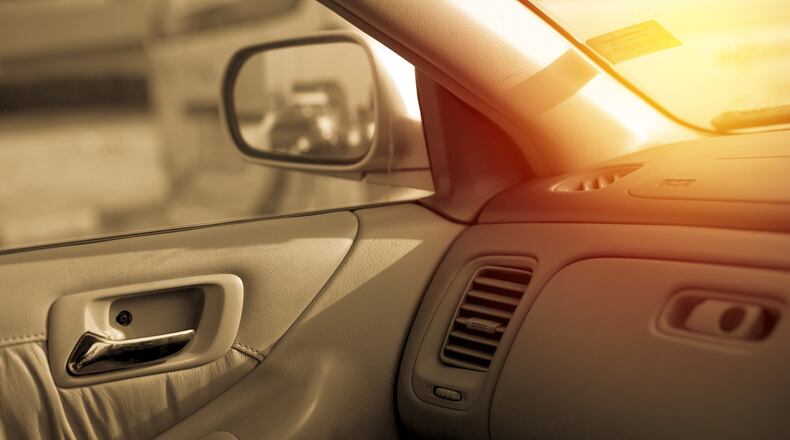The effects of heatstroke happen fast. “A child’s body heats up three to five times faster than an adult’s body,” says Jessica Saunders, director of Dayton Children’s Center for Child Health and Wellness.
Stuck in a hot car, a child’s body temperature can rise quickly to more than 106 degrees. Heat at this level can lead to brain damage and death. Immediate medical attention is needed for heatstroke and if a bystander sees a child unattended in a car, they should call 911.
Even on days when temperatures are mild, it is still dangerous to leave a child alone in the car. The temperatures inside rise each minute and by 10 minutes, they can rise 20 degrees. Cracking the window has little effect.
To help prevent further tragedies of children left in cars, here are some quick tips that can be remembered through the acronym “ACT” created by Safekids Worldwide.
• A: Avoid heatstroke-related injury and death by never leaving your child alone in a car, not even for a minute. And make sure to keep your car locked when you're not in it so kids don't get in on their own.
• C: Create reminders by putting something on the backseat of your car next to your child such as a briefcase, a purse or a cellphone that is needed at your final destination. This is especially important if you're not following your normal routine.
• T: Take action. If you see a child alone in a car, call 911. Emergency personnel are trained to respond to these situations. One call could save a life.
Taking steps in advance and putting measures in place ahead of time can make all the difference. Use a few minutes now to make sure your child is safe this summer.
This look at a children’s health or safety issue comes from Dayton Children’s Hospital. Email: newsroom@childrensdayton.org.
About the Author
